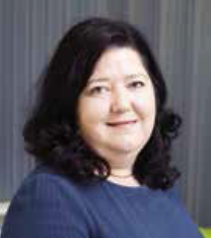Interview with Dr Lynley Marshall, Royal Marsden paediatric ECMC
Interview with Dr Lynley Marshall, Oak Foundation Consultant in Paediatric and Adolescent Oncology Drug Development at The Royal Marsden Hospital
 Could you tell us about your background and how you first got involved in working in the Teenagers & Young Adults (TYA) field?
Could you tell us about your background and how you first got involved in working in the Teenagers & Young Adults (TYA) field?
I am an Oak Foundation Consultant at The Royal Marsden Hospital where I lead the Paediatric and Adolescent Oncology Drug Development Unit. Our focus is on delivering high quality early phase clinical trials of novel therapies for children, teenagers and young adults with high risk cancers in a holistic, compassionate and age-appropriate setting.
I am fortunate enough to have trained in South Africa and in several regions in the UK, including Bristol/the South West, Oxford and London. From my earliest experience as an oncology trainee when TYA oncology was just evolving as a distinct entity, the need for specialist care and facilities for TYA patients was just being recognised and Teenage Cancer Trust units were springing up in treatment centres around the UK, it always struck me that the TYA cancer population was a very special group of patients, spanning both a wide age range and a broad 'stage of life' range, with so many needs to consider in trying to provide the best possible care for them, hopefully with the best possible outcomes. From early on I found looking after TYA cancer patients and fully involving them in any decision-making about their care amongst the most rewarding of my roles. Over the years, so many of those patients have left a deep impression on me both as a doctor and as a person. One of my favourite things about our unit is that we can facilitate novel treatments and clinical trials for patients seamlessly across the full paediatric and TYA age spectrum. I regard it as a privilege to care for these patients and their families, and also to lecture on the topic of TYA Oncology on our Royal Marsden MSc course each year.
When I became involved in the newly formed ACCELERATE international multi-stakeholder platform in around 2011/12, I also became one of the founding members of the 'Fostering Age Inclusive Research (FAIR)' Trials working group and subsequently co-chair, together with a patient advocate, of the UK branch. We work to raise awareness of the unmet medical needs of TYA cancer patients, with the aim of increasing access to clinical trials, novel therapies and tissue banking and research for them.
Why did you get involved in the ECMC TYA project and what’s been your experience so far?
The issues faced by the TYA cancer population are close to my heart; I see them at play in my daily clinical practice, and it motivates me to try and improve things for these patients. The ECMC TYA project is fully complementary to the efforts I'm already involved in as described above, and importantly also aligns with the NHS mandate to increase the offer of clinical trial recruitment and tissue banking for this group of patients, to improve outcomes for them.
I have found the ECMC TYA project to be very valuable so far - very thorough in scoping and identifying important areas for consideration and discussion, prior to 4 highly relevant and patient-centred workshops. I was involved in 3 of the 4 workshops and found them to be excellent. I expect that the project will have concrete outputs that help drive things forward for TYA patients.
From your perspective, why is it important to improve access to clinical trials and biobanking for TYA patients?
Historically, TYA cancer patients have had less access to clinical trials and biobanking than children or adults with cancer. I believe that we can improve outcomes for TYA patients by understanding their tumour biology better and by offering access to the best new drugs within clinical trials, so that the data is collected and can help many more future patients. This starts by having tissue available for scientific research - tissue that accurately represents the cancers that are still killing these young patients, and which can be used to study mechanisms of emerging disease resistance and to test new therapies in relevant disease models for them.
What impact do you hope this work will have for TYA patients and for the wider work of the ECMC network?
I hope that the ECMC TYA Project will successfully raise awareness of the unmet medical needs of the TYA cancer population, and encourage 'TYA Champions' to emerge in every setting, so that wherever TYA patients are first seen, they will be offered equitable access to information about clinical trials and biobanking, to help them make informed choices about their treatment and care options.
If you wanted people to have one take home message about this work what would it be?
It is absolutely crucial that access for the TYA cancer population to new therapies be considered early on in the design of every clinical trial of every novel therapy that could potentially address an unmet medical need, and tissue should be collected - artificial age barriers in clinical trials can cost lives and leave a significant proportion of cancer patients without access to trials of novel agents relevant to their disease.
